Reading comprehension Normal Punctuation Worksheets for Ages 6-9
5 filtered results
-
From - To
Enhance your young learners' reading comprehension with our engaging Normal Punctuation Worksheets designed specifically for ages 6-9! These worksheets focus on helping children understand punctuation marks and their importance in reading and writing. Through fun activities, kids will practice recognizing and using punctuation correctly, which boosts their overall comprehension skills. Each worksheet is crafted to be age-appropriate, ensuring that children grasp essential concepts while enjoying the process. Ideal for home or classroom use, these resources support early literacy development and make learning enjoyable. Start your child on the path to becoming a confident reader and writer today with our interactive worksheets!
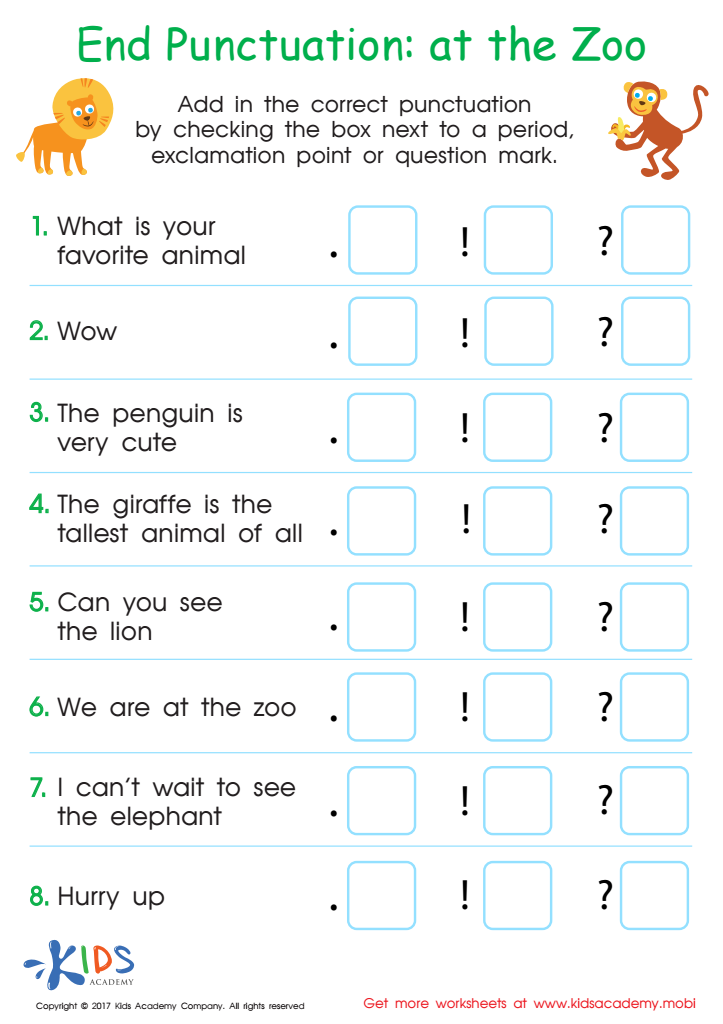

End Punctuation: At the Zoo Worksheet
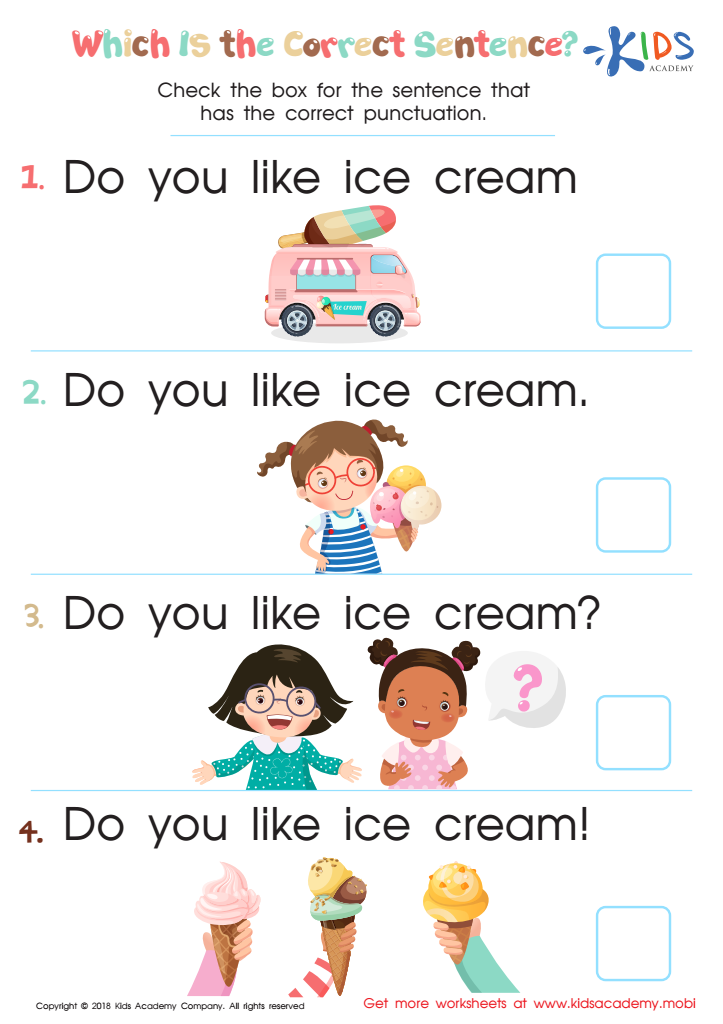

Which is the Correct Sentence? Worksheet
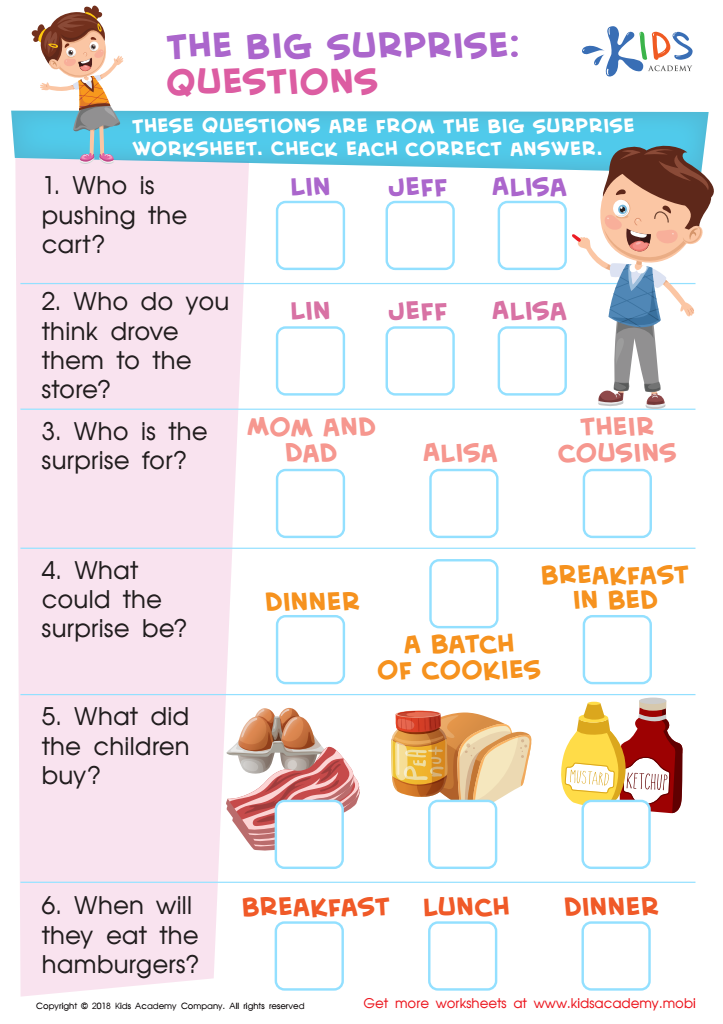

The Big Surprise: Questions Worksheet
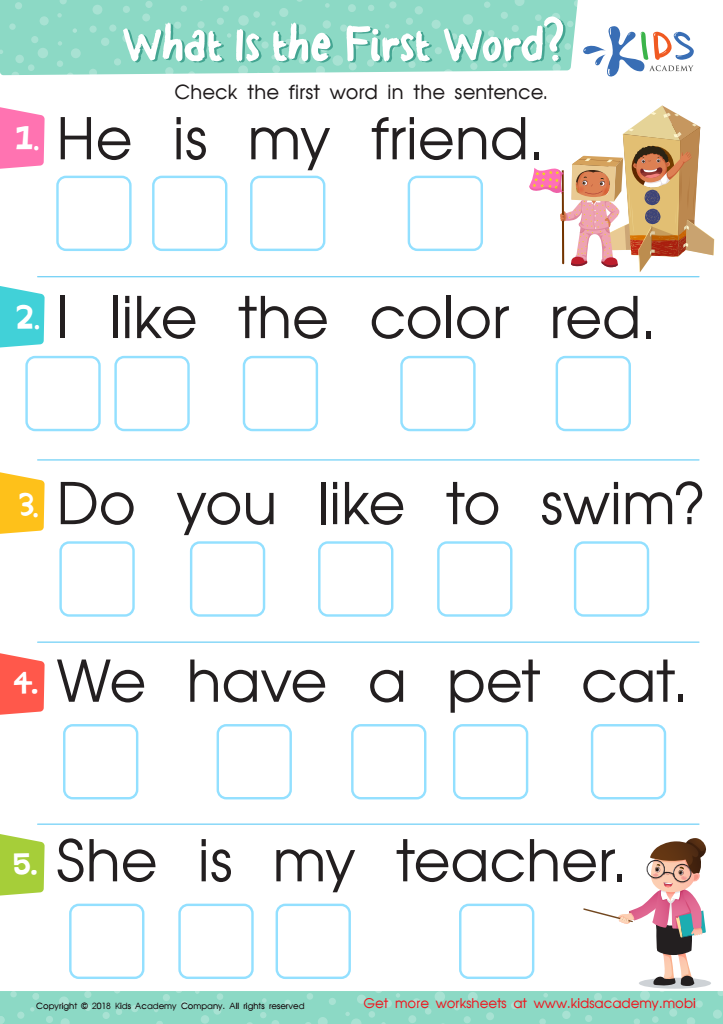

What is the First Word? Worksheet
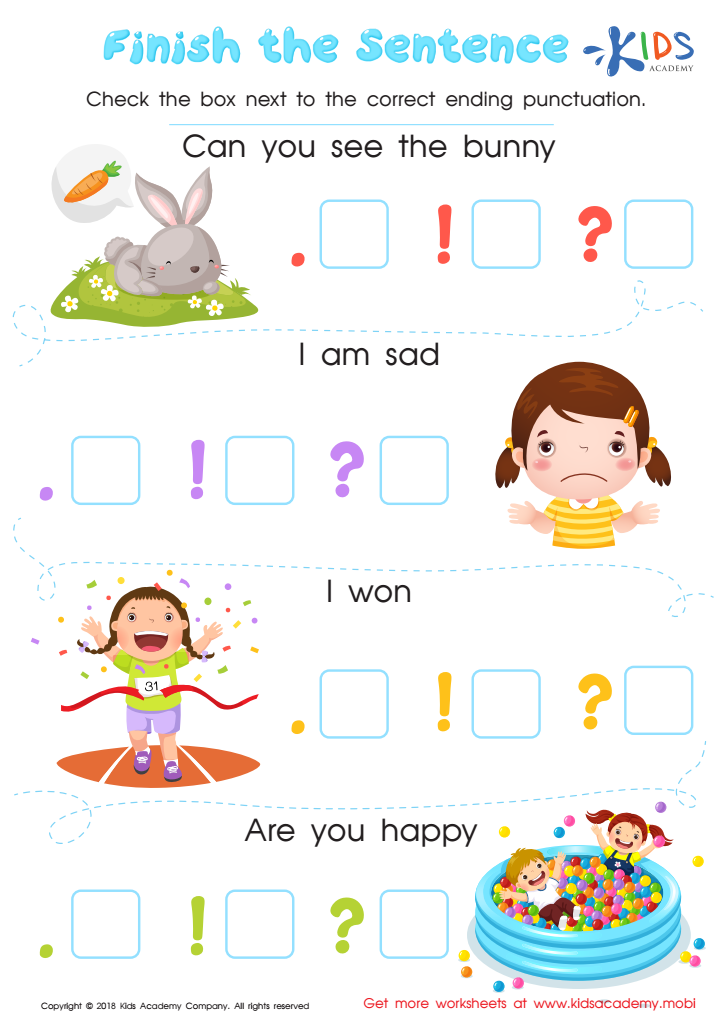

Finish the Sentence Worksheet
Reading comprehension is a crucial skill for children aged 6-9, as it lays the foundation for academic success and lifelong learning. During these formative years, kids transition from learning to read to reading to learn. This shift is significant; understanding narratives, information, and concepts within texts becomes indispensable across all subjects, from science to social studies.
Parents and teachers should prioritize reading comprehension because it not only helps children grasp meanings and concepts but also enhances their critical thinking abilities. When children can interpret and analyze what they read, they become more engaged and motivated learners. Moreover, effective comprehension skills contribute to better writing, as children learn to express their thoughts coherently and with clarity.
Additionally, strong reading comprehension skills can positively affect a child's self-esteem and confidence in their academic abilities. Poor comprehension can lead to frustration and disinterest in reading, which may hinder overall development. By supporting children's reading comprehension through engaging activities, discussions, and reading diverse texts, parents and teachers help cultivate a love for reading and create a strong foundation for future learning. In short, investing in reading comprehension at this stage pays dividends throughout a child's educational journey and beyond.
 Assign to My Students
Assign to My Students














